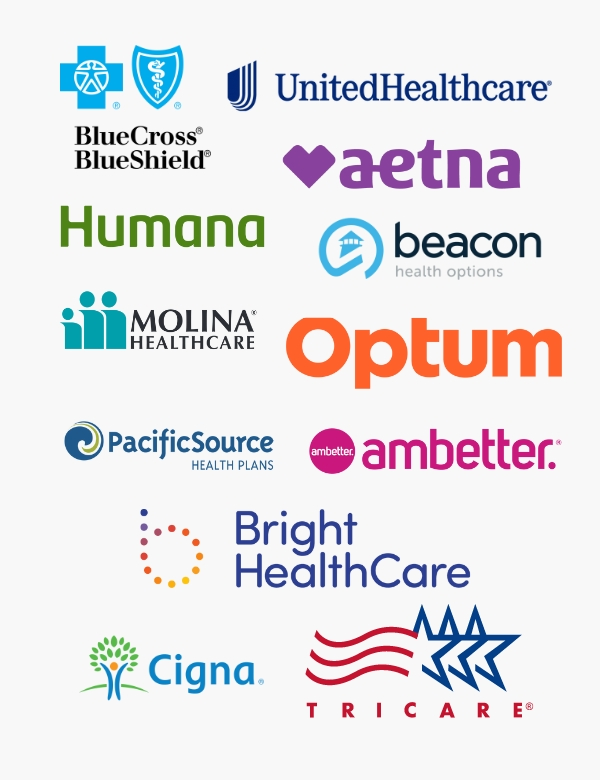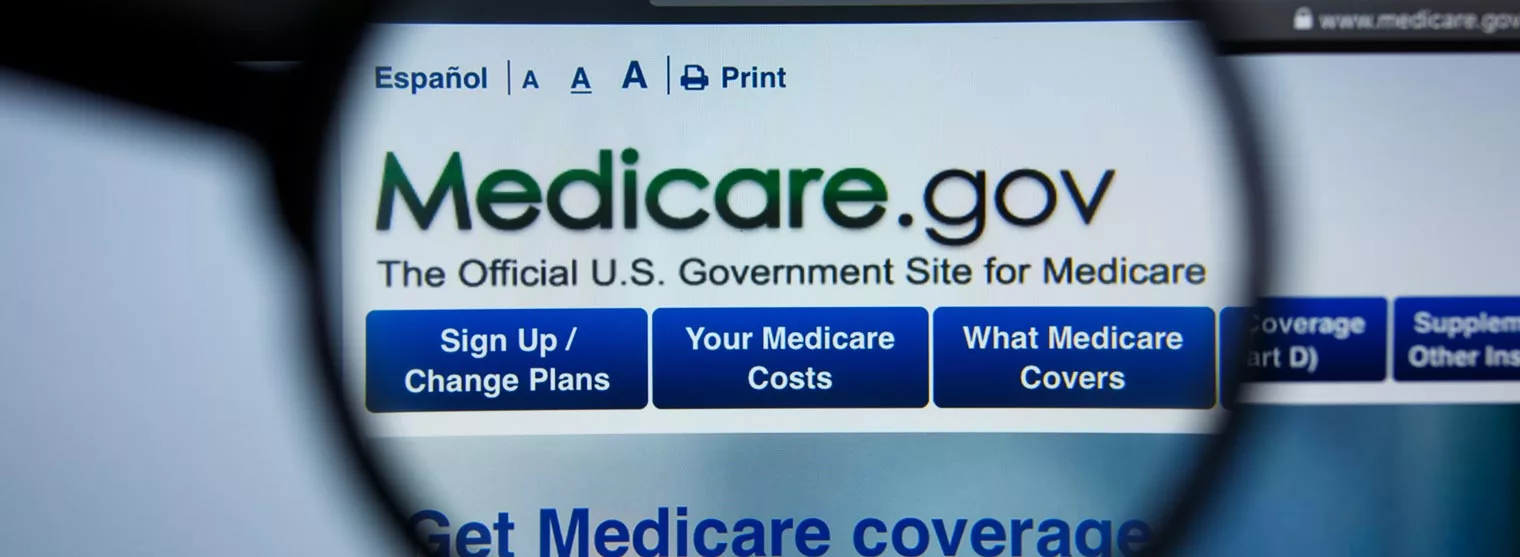Does Insurance Cover Rehab for Drugs and Alcohol?
Entering rehab is the most important step that a person seeking help with alcohol and substance abuse can take. By acknowledging the drug or alcohol addiction and need for help, and by seeking that help from a trusted provider like Ingrained Recovery, the path to a brighter future will suddenly come into focus.
Of course, even if you have been thinking about entering rehab and are just about ready to take this step, you may have plenty of questions about treatment. One of those questions likely revolves around the financial aspect of entering a rehab program. How are you going to pay for this treatment? On this page, we’ll address the matter of using insurance to pay for rehabilitation from drugs and alcohol, and what that looks like. We hope the information below will give you the confidence to get started on this journey as soon as possible.
If you would like to get more information on this topic, or if you would simply like to speak to a person directly about your situation, the team at Ingrained Recovery would love to assist. Simply give us a call on our toll-free helpline and we’ll be happy to answer your insurance coverage questions and guide you through this process.
Verify Your Insurance Coverage For Free
Insurance Coverage for Rehab: Does Insurance Cover Rehab?
Yes, we are happy to deliver the good news that insurance does cover rehab many times in full, on the basis of medical necessity. With a health insurance policy in place, you will have a variety of options to get the rehab care you need without having to bear the burden of the full cost of treatment.
You should be able to focus fully on your treatment and recovery without the stress of financial concerns, and insurance can make that a reality.
The Affordable Care Act (Obamacare) and Health Insurance Coverage
The Affordable Care Act is an important landmark in American healthcare history, not only in terms of helping individuals gain access to rehab but in the bigger picture of making sure as many Americans as possible have a health insurance policy. Before the ACA, it was difficult – or even impossible – for some individuals to secure quality health coverage.
The way preexisting conditions like substance abuse disorder and mental health conditions are handled as essential health benefits was also changed dramatically with the ACA. This act included substance abuse disorder as one of the 10 benefits that all healthcare insurers must offer, meaning it immediately became easier for countless people to gain access to rehab treatment under their insurance policy.

What Insurance Providers Are Accepted by Most Rehabs?
The major commercial health insurance companies all offer policies that will be accepted by most rehab facilities. A partial list of those health insurance providers includes –
- Aetna
- Anthem
- Blue Cross Blue Shield
- Cigna
- Evernorth
- Molina
- Ambetter
- Humana
- TRICARE
- Carelon (formerly Beacon Health)
- UnitedHealthcare
- Wellmark
- NYSHIP
- Regence
- GEHA
- Bright Health
- Multiplan
- Pacific Source
- Optum
- EmblemHealth (GHI)
- Private Pay (also known as self-pay)
- UMR
What Types of Rehab Does Insurance Cover?
Most insurance policies cover a range of rehab options. When you reach out to us, we will review your policy to confirm coverage eligibility for any rehab treatments that you are considering. Some of the many types of rehab options that might be covered under your insurance policy include the following –
- Private rehab
- Luxury rehab
- Dual-diagnosis rehab
- Rehab retreats
- Rehab ranch
- Men’s rehab
- Women’s rehab
- Couples rehab
- Coed rehab
- State rehab facilities
- Short-term Rehab
- Long-term Rehab
- 30 Day Rehab
- 60 Day Rehab
- 90 Day Rehab
You don’t want to guess as to whether or not your insurance will cover care at a given facility, so the best thing to do is reach out to us directly and have your coverage checked. At Ingrained Recovery, one of our rehab representatives will be happy to assist with this matter if you reach out for more information.

What Does Health Insurance Cover for Drug & Alcohol Treatment?
Often, all levels of the addiction treatment process will be covered by your insurance provider. That includes forms of treatment that are delivered in both the inpatient and outpatient format.
For inpatient care, it’s common for insurance to cover both detox care and residential treatment centers for drug and alcohol addiction. If you need to attend one or both of these kinds of treatments to address substance abuse issues, you may be able to enjoy coverage that will ease the financial burden of your care.
Even more, options are commonly available for coverage on an outpatient treatment basis. Some of the possibilities here include –
- Partial Hospitalization Program
- Intensive Outpatient Program
- Outpatient Program
- Aftercare
- Medication-Assisted Treatment
Many treatment options are covered under a typical health insurance policy, so most individuals will be able to get the care that is right for them without having to make sacrifices with an eye toward financial matters.
What Kinds of Addictions Does Health Insurance Cover?

Substance abuse disorder is a major health crisis across the United States. As of 2020, it was reported that more than 13% of Americans aged 12 and older had used drugs within the past month. With millions of Americans struggling with drug addiction and drug abuse themselves, there are many different substances at play, and health insurance covers treatment for most of them.
- Alcohol
- Amphetamine
- Benzodiazepine
- Cocaine
- Codeine
- Crack
- Fentanyl
- Heroin
- Hydrocodone
- Ibogaine
- Ketamine
- Marijuana
- Meth
- Methadone
- Morphine
- Narcotics
- Opiate
- Oxycontin
- Stimulants
- Valium
- Vicodin
- Xanax
Once your treatment at a rehab facility is considered medically necessary, your insurance policy will step in and cover that treatment. This determination will be made during a preliminary assessment where we will ask a set of questions to gain an understanding of your addiction and what treatments are needed to address physical and mental health concerns.
The whole process is free, easy, and completed quickly so you can get started with seeking addiction treatment, as soon as possible.
Common Types of Healthcare Plans and Benefits
The healthcare landscape in the United States is relatively complex, and for someone who doesn’t work in the industry, it can be daunting to understand the different types of insurance plans and their associated benefits. Below, we have outlined some of the most common insurance plan types and what they mean for you as a patient.
- Health Maintenance Organization: Typically referred to as an HMO, these types of plans focus on preventive care and the coordination of services. It’s usually necessary to get a referral from a primary care physician to see a specialist. If you have an HMO policy and would like to get help, we can assist you in navigating the admission process.
- Preferred Provider Organization: In this case, a PPO plan typically leaves their insured party (you and your loved ones) with more options than an HMO. Both in-network and out-of-network providers are usually covered, and referrals to in-network providers are not required.
- Point of Service: A POS plan offers lower costs if you stay within an established network of providers, although you are free to choose out-of-network providers. In most cases having access to both in-network and out-of-network options will allow you to choose a rehab that fits your needs.
- Exclusive Provider Organization: It’s usually not needed to get a referral with an EPO, but unlike a PPO plan, visits to out-of-network healthcare providers are typically not covered by these plans or by.
If your head is spinning try to decipher all of these different terms, you aren’t alone – few people have a firm grasp of the complexities of the insurance system. Your best bet to streamline this whole process is to contact an admissions coordinator at Ingrained Recovery who will take your insurance information, check the details of your policy, and help you to understand what would be covered if you seek treatment at our facility.
Find Solutions: Maximizing Your Insurance Coverage

How Much Does Rehab Cost with Insurance?
In many cases, treatment will be covered at 100% with private insurance plans. If treatment is not fully covered, you should only have to pay a small fraction of the overall cost of treatment if you have an active insurance policy.
It’s important to keep in mind that the cost of drug and alcohol treatment without insurance can range from $25k – $30k or higher. So, having an insurance policy is a huge help, and will bring the opportunity to enter rehab within the reach of any individual. Having your insurance checked during an initial call with the team at Ingrained Recovery will highlight what you can expect to pay for the addiction treatment services you need.
What are Out-of-Pocket Expenses for Rehab Treatment?
Even when rehab treatment is covered by insurance, there may be some out-of-pocket expenses to pay. Insurance coverage is a huge help, of course, but there may still be costs that you’ll need to cover. Some of the possible expenses that you may incur when seeking treatment for substance abuse issues include the three points below –
- Premium: The premium is the monthly payment you make to the insurance company to maintain your policy.
- Copays: When treatment is provided under your insurance policy, that policy may dictate that you make a copay at the time of service. This copay is usually a modest amount, but it will vary depending on what the treatment is and where it is being provided.
- Deductibles: Your deductible is a set amount that must be paid out-of-pocket before insurance benefits kick in.
How to Use Insurance to Pay for Alcohol Rehab
If you would like to explore the possibility of using insurance to pay for alcohol rehab or substance abuse treatment, the first step is to reach out to speak with a recovery representative. On that phone call, we can complete an insurance verification at no cost to you. The verification process confirms that your policy is active and determines what treatments are covered by your insurance. We will be able to tell you exactly what your out-of-pocket expenses will look like based on the results of the verification process.
With that information, you’ll be able to decide how you would like to proceed. The entire process is quick and easy, and if you are approved for treatment and decide to move forward, you can start those treatments in short order.
How to Get Insurance Coverage for Rehab

Before insurance can cover a treatment program in a rehab facility, you will need to have an active insurance policy. For that, there are many options available today, although not all of them will apply to your situation.
6 Ways to Get Insurance to Pay for Rehab
- Open Enrollment: There is an open enrollment period each year during which you can sign up or make changes to your health plan. It’s a good idea to review your options carefully with specific attention paid to how rehab is covered by the various policies.
- Special Enrollment / Major Life Events: Outside of the open enrollment period, you may be able to make changes or obtain a healthcare plan based on a major life event. Some of the qualifying events include the birth of a child, a change in employment, or a marriage.
- ACA Marketplace: The health insurance marketplace was a development of the ACA (Obamacare) program, and it is a centralized location for individuals to purchase healthcare during open enrollment.
- Employer: If you have a job that offers health insurance, you’ll have the opportunity to sign up for coverage through your employer. Ask your human resources department to learn more about health insurance options.
- Parents policy: Individuals who have not yet turned 26 may be eligible to be covered by their parent’s insurance policy.
- State insurance: You may qualify for a state-sponsored health insurance program if none of the other options are a good fit for your situation. In most cases, state-funded insurance policies offer limited coverage and should be a last resort if all other options are unavailable.
Finding an Alcohol Rehab That Accepts Private Insurance
Ingrained Recovery is proud to accept private insurance for drug and alcohol rehab treatment. Using private insurance to pay for and cover alcohol rehab is an excellent option that will allow you to focus completely on the recovery process without financial concerns.
Can I Go to Rehab without Insurance?
Absolutely – many people go to rehab without insurance coverage and use another option to pay for the services they receive. If you don’t have an insurance policy that covers rehab, or if you don’t have any insurance in place at all, the options below might be a suitable solution –
- Purchase insurance: Your best bet is likely to purchase an insurance policy that will allow you to go to a rehab center and have your care covered.
- Paying out of pocket: If you have the means available, you can simply pay for your treatment out of your own funds and get started right away.
- Payment plans: Even if you can’t pay for everything up front, it might be possible to work out a payment plan with the treatment center or facility to pay for your services over time.
- Scholarships: Some organizations offer scholarship programs to help individuals in need of further mental health services or rehab pay for the services they require.
- Loans: Finally, taking out a loan to pay for rehab might be a possibility, although this will depend on your financial status and other factors.
- Friends & Family: Your friends and family and family are a good source of assistance when it comes to getting help for drugs and alcohol. It may seem hard, but you would be surprised at the support you receive when you truly want help and ask for it from your loved ones.
Does Medicare Cover Drug and Alcohol Rehab?

Yes, Medicare offers coverage for alcohol rehab treatments. With that said, it’s typically the case that going to rehab under Medicare coverage is going to be limited to specific Medicare facilities.
Generally speaking, a private rehab facility is not going to accept Medicare, so another insurance policy or payment option will need to be used.
Please note: at this time Ingrained Recovery does not accept Medicaid or Medicare coverage for treatment.
Does Medicaid Cover Rehab?
Like Medicare, Medicaid also provides coverage for alcohol rehab treatments. Unfortunately, that coverage will be limited to state-funded facilities and most private rehab facilities are unable to accept Medicaid. If possible, it’s better to obtain a private insurance policy as a way of opening up rehab facility options that may be a better fit for your needs.
COBRA Coverage
If you have recently lost your job, or expect to have that happen shortly, COBRA health insurance coverage may be a good option to pursue. COBRA coverage essentially acts as a bridge to make sure you remain covered while between jobs and going through a transition phase.
Typically, the individual has 60 days from when they are notified of COBRA eligibility to sign up for this program. For most people who participate in the program, coverage is limited to a duration of 18 months. Simply put, COBRA may be an option to get coverage for rehab treatment if you have recently lost employment.
To explore your options with Ingrained Recovery, mention the possibility of using COBRA coverage when you give us a call and we will be happy to help you understand the options.
What is the Difference Between an In-Network and Out-of-Network Rehab Program?
In health insurance terminology, an in-network rehab facility already has a contract in place with the insurance company. That contract outlines the rates that the insurance company will pay for services. By contrast, an out-of-network treatment provider does not have an agreement in place, although that does not necessarily mean that treatment won’t be covered.
What is the Difference Between Commercial Insurance and State-Funded Insurance?
Commercial insurance is a policy that an individual (or group, such as a business) takes out with a private insurer, such as Aetna, Cigna, Blue Cross Blue Shield, or UnitedHealthcare. On the other hand, state-funded insurance is a government program like Medicaid or Medicare that is typically less expensive but comes with a range of drawbacks.
Some of the downsides of state-funded health insurance plans can include a strict limitation on what programs can be attended, long wait lists for admission, and even a lower standard of care. When possible, it’s preferred to obtain a private insurance policy as the experience for the patient will be better overall when compared to state-funded options.
Using Insurance to Pay for Rehab: Get Help Today

The good news on this page is that yes, health insurance covers rehab. If you hold an active insurance policy and are interested in entering rehab to address an addiction issue, the cost of your treatment will be dramatically reduced and covered as an essential health benefit in many cases.
At Ingrained Recovery, we accept most insurance policies and are happy to work with prospective patients to determine their eligibility. There are many ways to get insurance to cover the cost of rehab, and our admissions coordinators are available to go over the possibilities and craft a plan that works for your needs.
You deserve to start healing today. When you give us a call, we’ll walk you through the insurance issues that need to be sorted out so you can make an informed decision and get started on your treatment as soon as possible. It would be our honor to serve you.
